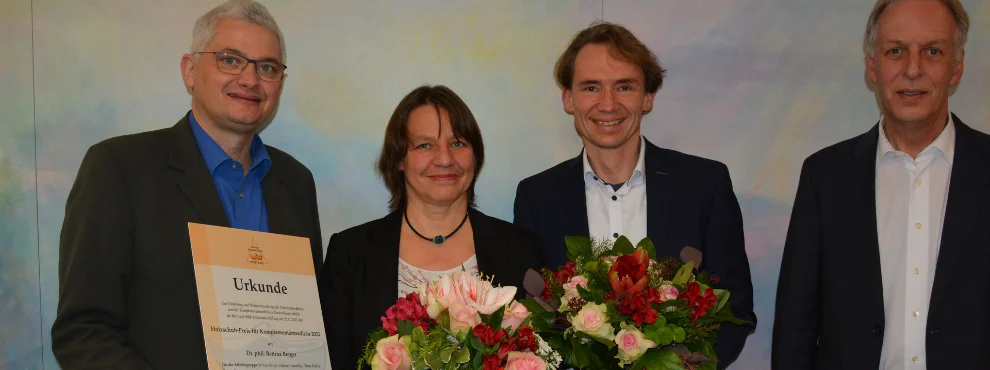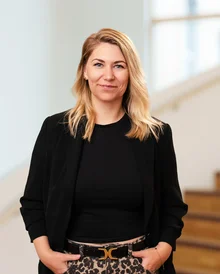Holzschuh Prize for study: fasting is also possible with type 1 diabetes
Dr Bettina Berger from Witten/Herdecke University and her team were able to show that people with type 1 diabetes can control their metabolism well even under fasting conditions.

People with type 1 diabetes can also fast: this is shown by a feasibility study by Dr Bettina Berger from Witten/Herdecke University (UW/H), who, together with her working group, has tested fasting for several days. She was honoured with the Holzschuh Prize for Complementary Medicine for her work. The prize is awarded annually by the Board of Trustees of the Karl and Hilde Holzschuh Foundation and is endowed with 5,000 euros.
Fasting - the voluntary renunciation of solid food over a certain period of time - is practised in numerous cultures and religions and has become an integral part of modern naturopathy. This is because a number of positive effects have been demonstrated as a therapeutic intervention. People with type 1 diabetes have so far been advised against fasting. The main reason for this is the complicated control of the insulin balance. Only a few doctors are prepared to look after people with type 1 diabetes during fasting.
Fasting according to the Buchinger programme
Dr Bettina Berger and her working group have taken a first step in this direction. In a study, they investigated the feasibility, the positive effects and also fasting-related side effects. To this end, 20 people with diabetes and a reference group of 10 people without diabetes fasted for seven days according to the Buchinger programme. The Buchinger fasting programme is a guideline-based multimodal intervention and includes the intake of liquids such as broth, vegetable juice, water and tea as well as exercise, resource-oriented training and mindfulness. Naturally, the insulin dosage was adapted to the fasting programme and all values were monitored regularly.
The results are impressive: The blood glucose levels remained predominantly within the target range; there were no severe hypo- or hyperglycaemia. Weight and BMI improved significantly both directly after fasting and in a follow-up survey. In the qualitative survey four months after the intervention, in addition to the physical improvements, significant changes in diabetes management were observed: increased flexibility in dealing with dietary restrictions and the development of the ability to fast intermittently.
Important milestone in the treatment of type 1 diabetics
Ragnar Watteroth, Board of Trustees of the Karl and Hilde Holzschuh Foundation, emphasises: "The founders were very keen to promote complementary medicine. By awarding this research prize, one of the most important prizes in the field of integrative medicine, we are honouring the wishes of the founders. And we are particularly pleased that this year - for the 15th time - we are not only able to honour such high-calibre research work, but also to focus on a patient group that has otherwise benefited little from complementary medicine."
The Holzschuh Prize for Complementary Medicine is awarded annually and is endowed with 5,000 euros. The prize is awarded by an independent jury appointed by the Hufeland Society and the Holzschuh Foundation. Among other things, the design of the study and the quality of the results as well as the relevance for complementary medicine are assessed.
The original publication can be found at Bettina Berger et al (2021): Seven-day fasting as a multimodal complex intervention for adults with type 1 diabetes: Feasibility, benefit and safety in a controlled pilot study (Nutrition 86 (2021) 111169)
Further information
Photos for download
Contact person

Svenja Malessa
Press Officer
Administration | Communication & Marketing
Alfred-Herrhausen-Straße 48
58455 Witten
Room number: 2.F05
